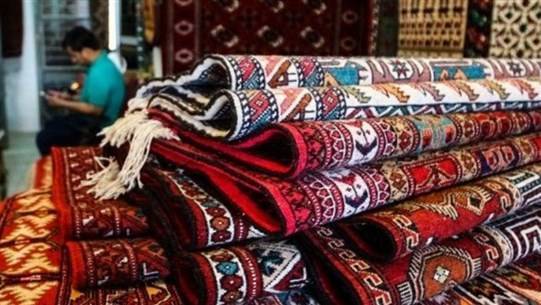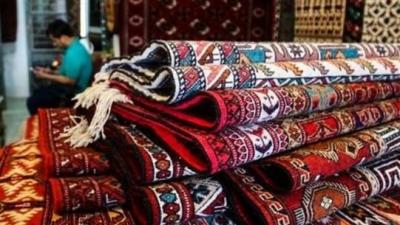"Who will buy you, carpet?" Prices are skyrocketing these days, with the price of one meter of carpet at $12, having previously been about $4.50 before the crisis. Traders are trying to benefit from the carpet season to achieve exorbitant profits, even at the expense of "keeping people warm."
Despite the decline in the carpet market due to the crisis, there is a significant increase in prices. Most carpet sellers attribute the rising prices firstly to oil prices, and secondly to the burning of the "Qublan factory," which used to supply the market with domestic carpets. "This is an additional reason for price increases," according to Abu Yusuf, a carpet seller in the Nabatieh area.
Abu Yusuf is known for his popular prices, but he has also followed the wave of inflation, unwilling to reduce the price by even half a dollar, arguing "we would lose," even though most of the carpets available in his shop are from last year's stock.
Fida enters the shop to buy a carpet; she used to only need one, but now she has to buy a second one for her daughter to move around on. However, she couldn't afford to buy because "the smallest carpet is $170," which exceeds her budget. With frustration, she says, "If my salary is $30, how can I pay for a $170 carpet?" Furthermore, she says "traders exploit people's need for carpets, which are essential in winter, raising prices."
Some have resorted to repairing their old carpets instead of buying new ones, as they can't afford new ones; this phenomenon is widespread, leading most carpet sellers to focus on carpet repairs.
Yousra brings her old carpet to Abu Ali Fakhoury. She chose to repair the carpet instead of replacing it, stating, "The shortage drives us to repair carpets. Previously, a carpet cost $100; today, it's $20 for a patch. Unfortunately, domestic carpets are more expensive than imported ones."
Mohammed Fakhoury, a carpet trader, acknowledges the decline in sales and people's tendency to repair their carpets, in addition to searching for cheaper options, even if their quality is lower. According to him, "Most carpets in the market are Turkish and priced very high, with sales limited to the affluent class. As for the poor, they can only rely on God," he remarks, attributing the high carpet prices to two factors: oil, due to the petroleum-based materials involved in its production, and the dollar. Between the two, many people's carpets have disappeared during these days.
Sabah sifts through carpets, looking for one "within her means." She recently got married and wants to furnish her house with carpets. She thought she would be able to do so, assuming the prices would be reasonable. She went to a popular store, believing that prices would consider people's circumstances, but she was surprised that popular carpets are no longer affordable and have followed the wave of inflation, depriving her and many like her of "the warmth" in the heart of winter. This led her to say, "Even warmth is forbidden to us... It's not enough to deprive us of the simplest things; even the blessing of warmth has been denied to us, which will make us hostages to diseases, and medicine has become almost nonexistent."
Even carpets have not escaped the crisis and have joined the dollar fluctuations, with payments also being made in dollars. Amidst the burning prices and cold weather, it seems that cold will be a characteristic of this year, as carpets have become a luxury for poor families, leaving them only with advertisements and smiles per meter, while in reality, "the meter makes one cry."




